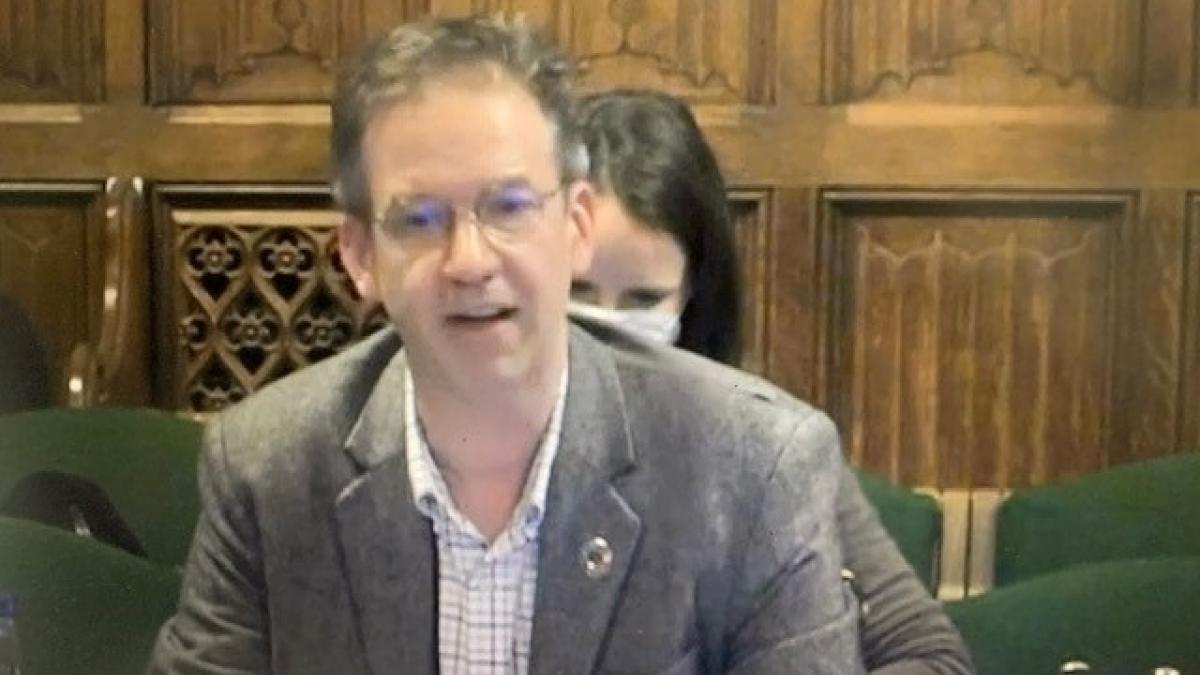 IFoA Council member Nick Spencer gave evidence yesterday on behalf of the IFoA today to the House of Commons Environmental Audit Select Committee on their inquiry into how to align the UK’s economic goals with environmental sustainability. The committee considered alternatives to GDP, looking at how including natural and social capital might impact government, private firms, and financial institutions.
IFoA Council member Nick Spencer gave evidence yesterday on behalf of the IFoA today to the House of Commons Environmental Audit Select Committee on their inquiry into how to align the UK’s economic goals with environmental sustainability. The committee considered alternatives to GDP, looking at how including natural and social capital might impact government, private firms, and financial institutions.
In his opening statement, Nick highlighted that environmental and other sustainability risks represent material financial risks over both the short and long term. Understanding these systemic risks and the direction and policy in regards to GDP is critical to understanding the long-term financial impacts. At the moment, corporates are incentivised to maximise profits, not to think about the social take. To achieve the Government’s broader aims, we want to look at the incentive system - how does it measure profits, and how does it tax and regulate activities.
Previous witnesses had noted how GDP figures hide inequality and deprivation. Nick suggested a focus on growth in constituents’ median income would be a more direct reflection of their experience. He added there was also a question of intergenerational fairness. At the moment, social discount rate of 3.5% which is linearly related to GDP growth expectations. If we are no longer in a GDP growing world, what is the correct social discount rate? Furthermore, GDP doesn’t look at how we allocate our scarce resources. For example, we can only emit so much more CO2 before we have tragic consequences. He raised the key issue of intergenerational fairness saying that GDP growth with excessive CO2 emissions means that we are borrowing from the wealth of the future.
Asked about a dashboard of indicators as an alternative to GDP, Nick noted the challenges in using qualitative measures with the need to convert a soft aspiration on nature or society to a hard number. What does ‘better nature’ or a ‘good social approach’ from a company mean? In ESG we have 17 SDGs, underlying those are 169 different targets, underlying these a whole series of measurements. How do we blend these together? What are the relevant merits? What is the right number to put on the dashboard?
Furthermore, the raw data is a work in progress. We need to set up the measurement structures, but that takes time and understanding. The key thing here is not to let the aim of the perfect be the prevention of the good. How do we improve, how do we get more data and how do we make a start is far more important.
Finally, there is that maxim that you can manage what you measure, so data is the starting point. However, the risk is that when you put everything as a number, you lose the context. We fail to see what we are trying to achieve and we start gaming the numbers. When gathering data, we mustn’t lose sight of the purpose.
The broader challenge for GDP as an economic metric is that we are not on a sustainable pathway. Unmitigated climate change will kill off GDP, will kill off the modern economy if we don’t take action to manage that. Understanding incentivisation is key: what drives behaviour of individual companies and the political economy as a whole? Politicians like GDP growth because it means you can spend more today, because debt bearing gets easier over time, especially in an era of low interest rates. If you don’t have GDP growth, you are going to have to cut back on what you can promise today. How would we ensure that the Treasury and politicians are not incentivised around GDP growth?
GDP is not a sustainable metric. We need to broaden to inclusive wealth measures, as recommended in the Dasgupta report. We then need to consider the incentives and regulations to engage these in private companies. What are the disclosures, accounting, regulations? Where does that lead us in regards to tax policy and incentivising activities we want and disincentivising those we don’t? What are the social policies that we want to embed in the system? And how do we give credit for that social capital that’s generated? The overarching need is to develop measures that show we are progressing along a just transition to net-zero that’s nature positive. We should then align our incentives – both of policies and economy – to support that progress.
Nick gave evidence alongside the Aldersgate group and Royal Society of Edinburgh as well as two prominent academics, Dr. Matthew Agarwala and Professor Tim Jackson.
You can watch Nick give evidence over on Parliament.tv from 15:40:22